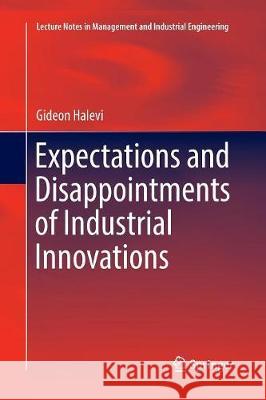Expectations and Disappointments of Industrial Innovations » książka
topmenu
Expectations and Disappointments of Industrial Innovations
ISBN-13: 9783319844671 / Angielski / Miękka / 2018 / 131 str.
Kategorie:
Kategorie BISAC:
Wydawca:
Springer
Seria wydawnicza:
Język:
Angielski
ISBN-13:
9783319844671
Rok wydania:
2018
Wydanie:
Softcover Repri
Ilość stron:
131
Waga:
0.21 kg
Wymiary:
23.39 x 15.6 x 0.79
Oprawa:
Miękka
Wolumenów:
01











